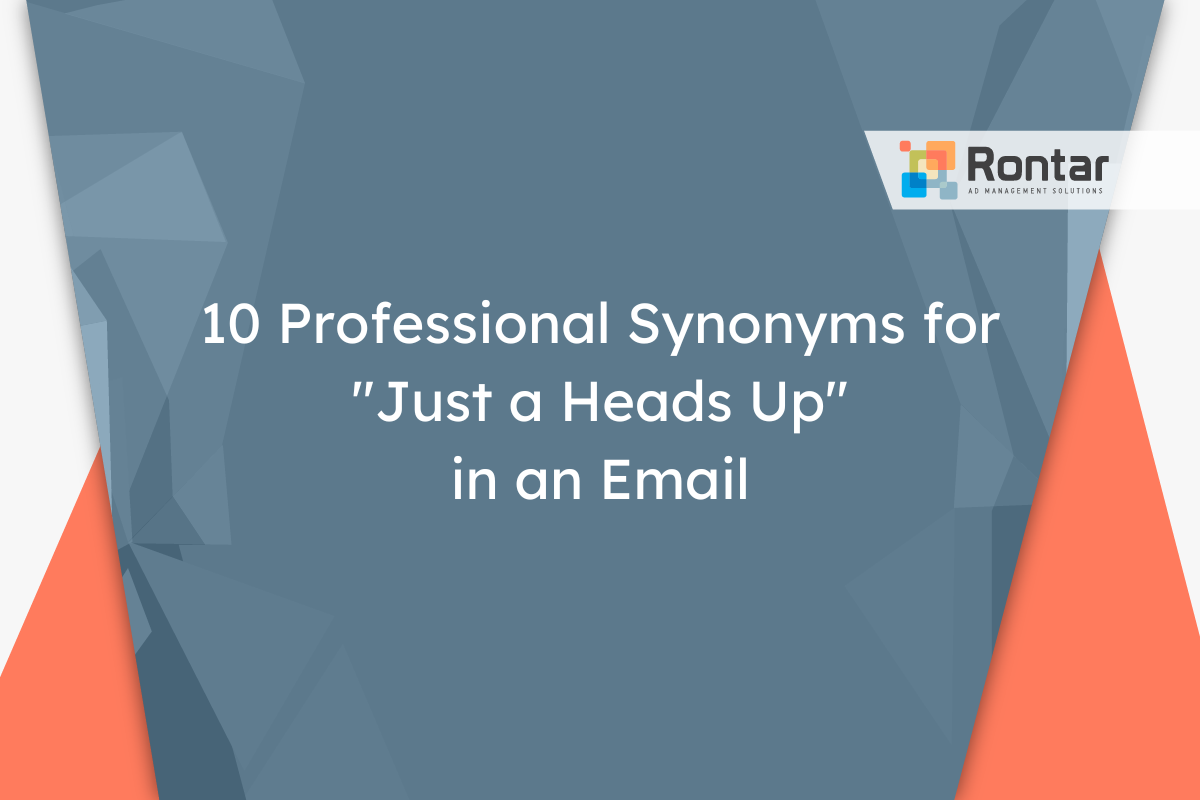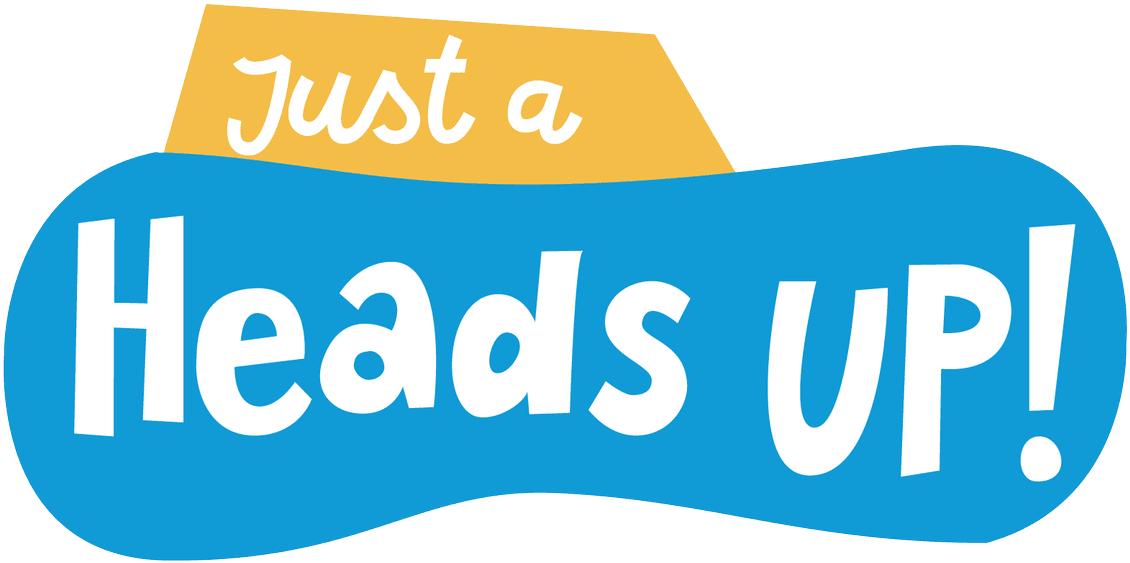We all get busy and sometimes miss important updates. That’s why a heads up can be so helpful.
In this blog post, we’ll explore what a heads up is and why it matters. A heads up is a simple, yet powerful gesture. It’s a way to share important information before it’s too late. Whether it’s a reminder about a meeting, a warning about traffic, or a tip about a sale, heads ups keep us informed and prepared.
They help us avoid surprises and make better decisions. By giving a heads up, we show we care about others’ time and well-being. So, let’s dive into the many ways a heads up can make a difference in our daily lives.
Introduction To Essential Tips
When it comes to navigating daily challenges, having a set of essential tips can be a lifesaver. Tips help streamline tasks, save time, and reduce stress. This blog will introduce some fundamental tips that everyone should know. These tips will make your life a bit easier.
Why Tips Matter
Tips simplify complex tasks. They provide a clear path to follow. This reduces guesswork and frustration. Tips also help avoid common pitfalls. They offer tried-and-true solutions. This saves time and effort. Tips also foster confidence. Knowing what to do in a situation makes you feel prepared.
How To Use Tips Effectively
First, prioritize the tips that are most relevant to you. Not all tips will apply to every situation. Identify which tips can benefit you the most. Next, practice these tips regularly. Consistent use helps reinforce the habits. Gradually, these tips will become second nature.
Additionally, share useful tips with others. Sharing knowledge helps build a supportive community. You can also learn new tips from others. Keep a list of handy tips. Refer to this list when needed. This ensures you have a quick reference.

Credit: www.facebook.com
Health And Wellness
Staying healthy and well is important for a good life. It involves keeping the body and mind in good shape. To achieve this, focus on two main areas: daily exercise and a balanced diet. Let’s dive into these two key aspects.
Daily Exercise
Engaging in daily exercise keeps the body strong and active. It helps reduce stress and improve mood. Simple activities like walking, running, or cycling can make a big difference.
- Walking: Aim for 30 minutes a day.
- Running: Start with short distances, then increase.
- Cycling: Great for the legs and cardiovascular health.
Strength training is also important. Try to include exercises like:
- Push-ups
- Squats
- Lunges
These exercises build muscle and improve overall fitness. Consistency is key. Make exercise a part of your daily routine.
Balanced Diet
A balanced diet provides the body with essential nutrients. It includes a variety of foods in the right proportions. Here is a simple table to guide you:
| Food Group | Examples | Daily Servings |
|---|---|---|
| Fruits | Apples, bananas, berries | 2-3 servings |
| Vegetables | Carrots, spinach, broccoli | 3-5 servings |
| Proteins | Chicken, fish, beans | 2-3 servings |
| Grains | Bread, rice, pasta | 3-6 servings |
| Dairy | Milk, cheese, yogurt | 2-3 servings |
Drink plenty of water. Aim for 8 glasses a day. Avoid sugary drinks and limit processed foods. A balanced diet supports good health and boosts energy levels.
Time Management
Time management is crucial for productivity and success. It helps you achieve more in less time. By managing time well, you can reduce stress and improve focus. Let’s explore some effective strategies for better time management.
Prioritizing Tasks
Prioritizing tasks is essential. Start by identifying urgent and important tasks. Focus on these first. Create a to-do list. Rank tasks based on their importance. Break large tasks into smaller steps. This makes them more manageable. Use tools like calendars and planners. They help you stay organized. Regularly review and adjust your priorities.
Avoiding Procrastination
Procrastination can be a major time-waster. Set clear goals and deadlines. Break tasks into smaller parts. This makes them less overwhelming. Use techniques like the Pomodoro Technique. Work for short periods, then take breaks. Eliminate distractions. Find a quiet workspace. Turn off notifications. Reward yourself for completing tasks. Stay motivated and focused.

Credit: www.rontar.com
Financial Advice
Financial advice can be a lifesaver for managing your money better. By following some simple tips, you can make smarter financial decisions. Let’s dive into some essential advice on budgeting and saving.
Budgeting Basics
Budgeting is the foundation of good financial health. Start by tracking your income and expenses. Use a simple spreadsheet or a budgeting app. Categorize your spending into needs and wants. This helps you see where your money goes.
Set a budget for each category. Stick to it. Avoid impulse buying. Make sure to review your budget monthly. Adjust it as needed. This keeps your finances on track.
Saving Strategies
Savings are crucial for financial security. Begin with an emergency fund. Aim to save three to six months of expenses. This acts as a safety net for unexpected costs.
Automate your savings. Set up automatic transfers to your savings account. Treat savings as a non-negotiable expense. This makes it easier to save consistently.
Consider different savings goals. Plan for short-term and long-term needs. Short-term goals could be a vacation. Long-term goals might include retirement. Use high-interest savings accounts for better returns.
Cut unnecessary expenses to boost savings. Review your monthly bills. Look for areas to save. Small changes add up over time.
Effective Communication
Effective communication is key in every aspect of life. It helps build trust and understanding. It reduces misunderstandings and conflicts. Let’s explore two main components of effective communication: active listening and clear expression.
Active Listening
Active listening means fully concentrating on the speaker. It involves understanding their message and responding thoughtfully. Show you are listening with nods or small verbal acknowledgments. Avoid interrupting the speaker. Let them finish their thoughts. Reflect on what they say. Summarize or paraphrase their points to show understanding. This builds trust and shows respect.
Clear Expression
Clear expression is crucial for effective communication. Use simple and precise language. Avoid jargon or complex terms. Speak slowly and clearly. Make your points concise. Ensure your body language matches your words. Maintain eye contact to show sincerity. Ask questions if you need clarification. This ensures both parties are on the same page.

Credit: www.law.berkeley.edu
Stress Management
Stress Management is essential for maintaining mental and physical health. Stress affects everyone, but knowing how to manage it can make a big difference. Below, we discuss two effective strategies for managing stress: mindfulness techniques and relaxation practices.
Mindfulness Techniques
Mindfulness techniques help you stay present and aware. They reduce stress and improve focus. Here are some popular techniques:
- Breathing exercises: Focus on your breath. Inhale deeply, exhale slowly.
- Body scan: Pay attention to each part of your body. Notice any tension.
- Guided imagery: Visualize a peaceful scene. Imagine yourself there.
Mindfulness requires practice. Start with a few minutes each day. Gradually increase the time as you get comfortable.
Relaxation Practices
Relaxation practices calm the mind and body. They are effective for reducing stress. Here are some common practices:
- Progressive muscle relaxation: Tense and relax each muscle group. Move from head to toe.
- Yoga: Combine physical poses with breathing exercises. Improve flexibility and relaxation.
- Meditation: Sit quietly. Focus on a single thought or object. Let go of distractions.
Regular practice is key. Set aside time each day for relaxation. Even a few minutes can make a difference.
Building Relationships
Building strong relationships is key to personal and professional growth. Connecting with others can open many doors. It helps create trust and mutual support. Here are some tips on how to build and maintain relationships effectively.
Networking Tips
Networking can feel daunting. Start small by attending local events. Join groups that match your interests. Introduce yourself and ask questions. Show genuine interest in others. Exchange contact information and follow up later. Use social media to stay connected. LinkedIn is a great platform for professional networking. Share useful content and engage with posts.
Maintaining Friendships
Friendships need effort to thrive. Regular communication is crucial. Schedule time to meet up or chat. Remember important dates like birthdays. Send a quick message or make a call. Small gestures go a long way. Show empathy and listen actively. Be supportive during tough times. Celebrate successes together. Be honest and open in your conversations. Trust and respect are the foundation of any friendship.
Personal Development
Personal development is a lifelong journey. It involves improving your skills and qualities. This journey helps you reach your full potential. Everyone’s path to personal development is different. Focusing on specific areas can make this journey easier.
Setting Goals
Setting goals is the first step in personal development. Clear goals give you direction. They help you understand what you want to achieve. Write down your goals. This makes them real and concrete. Break big goals into smaller, manageable tasks. This makes them less overwhelming. Track your progress. Adjust your goals as needed.
Continuous Learning
Continuous learning is essential for personal growth. It keeps your mind active and engaged. Learn new skills or improve existing ones. Read books, take courses, or attend workshops. Practice what you learn. This reinforces new knowledge and skills. Stay curious and open-minded. Embrace new experiences and challenges. This will help you grow personally and professionally.
Frequently Asked Questions
What Does “just A Heads Up” Mean?
“Just a Heads Up” is a phrase used to alert someone about something important. It serves as a warning or reminder.
When Should I Use “just A Heads Up”?
Use “Just a Heads Up” when you need to inform someone about upcoming changes. It’s useful for giving warnings.
How Can “just A Heads Up” Improve Communication?
“Just a Heads Up” helps in providing timely information. It ensures that the recipient is aware and prepared.
Is “just A Heads Up” Considered Polite?
Yes, “Just a Heads Up” is considered polite. It shows concern and helps in effective communication.
Conclusion
Understanding these tips can greatly benefit your daily life. They help you stay aware and prepared for unexpected situations. Simple actions can make a big difference. Always keep these pointers in mind. Stay safe and informed. Remember, small steps lead to big changes.
Stay proactive and mindful. Your future self will thank you.
